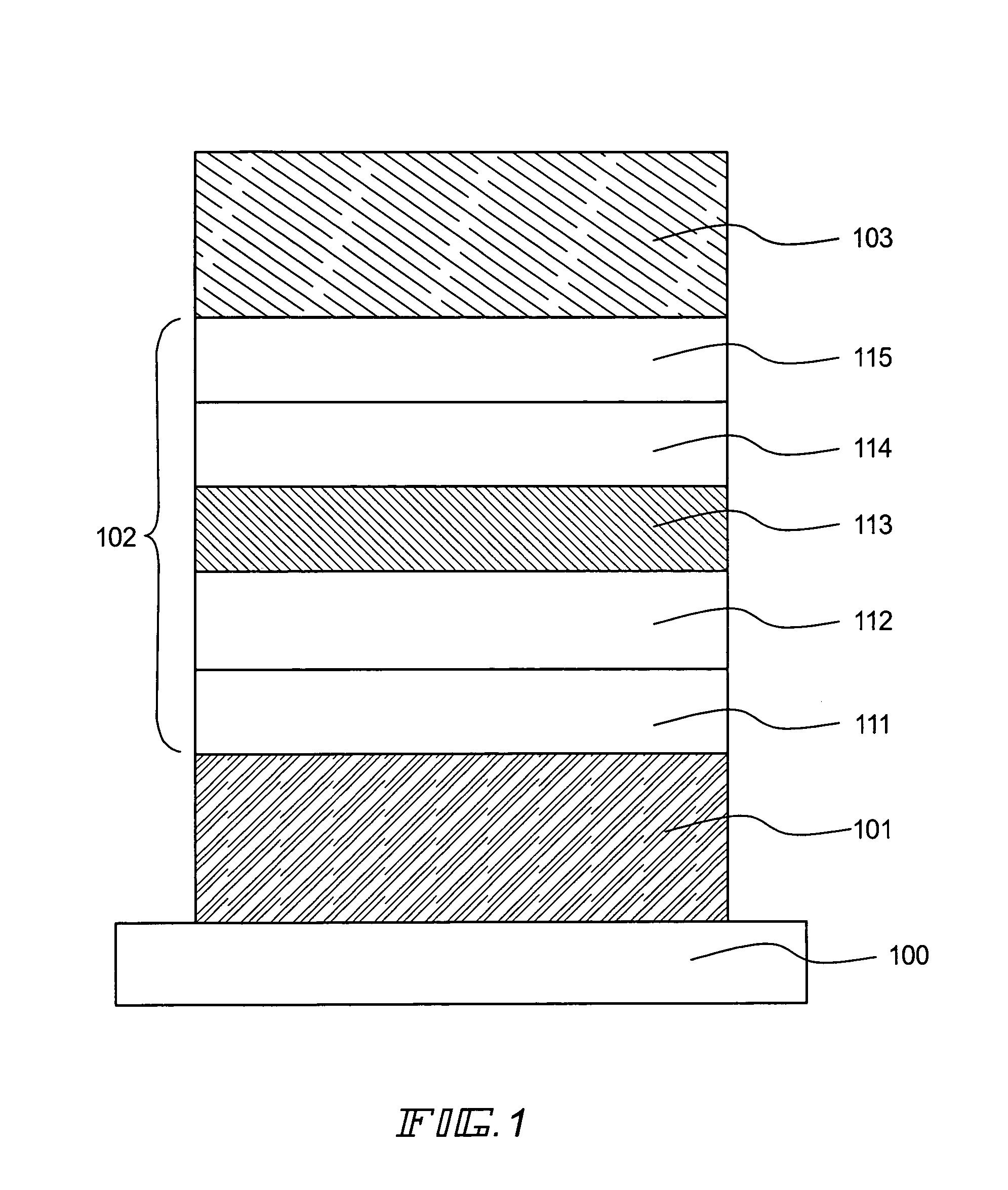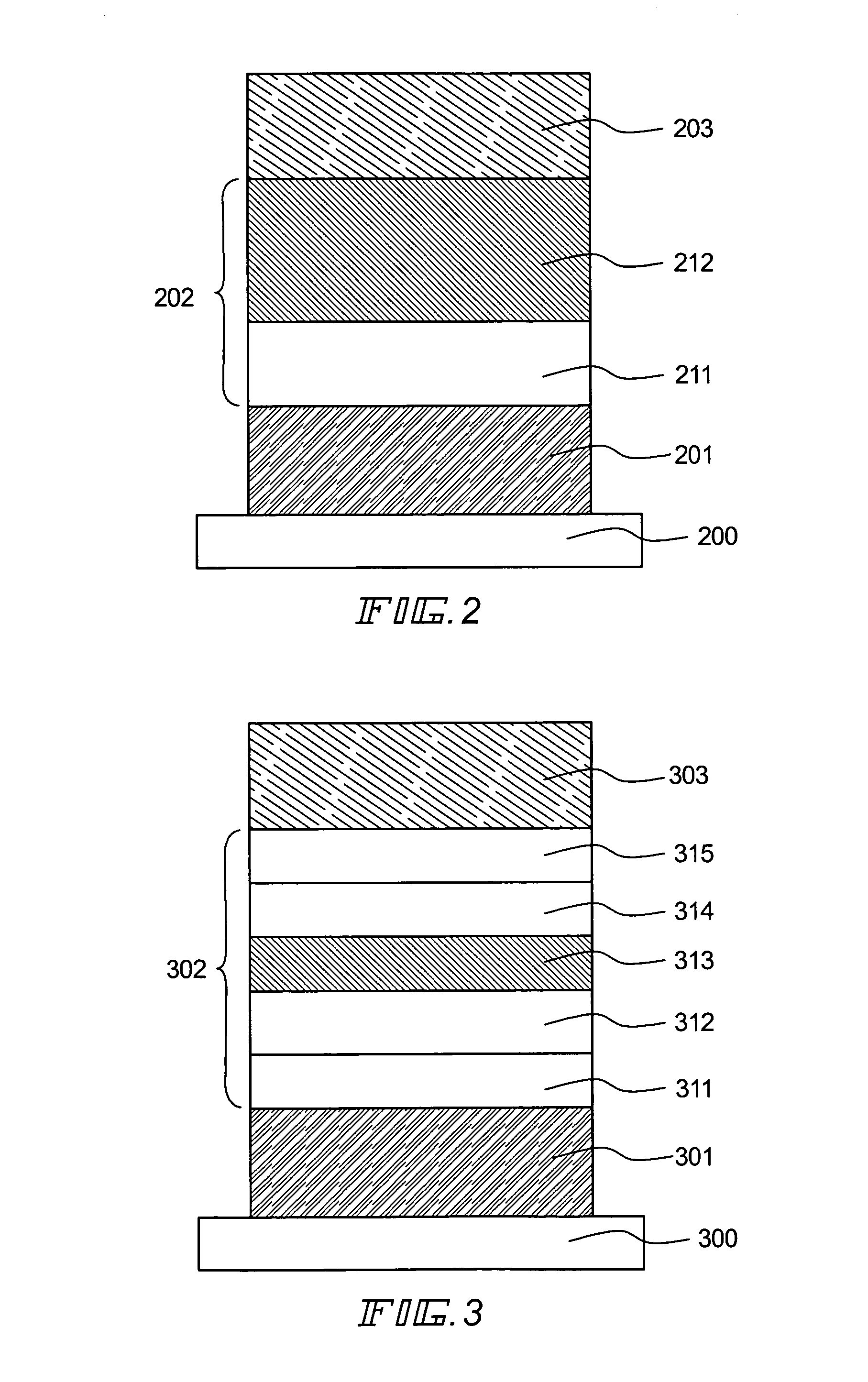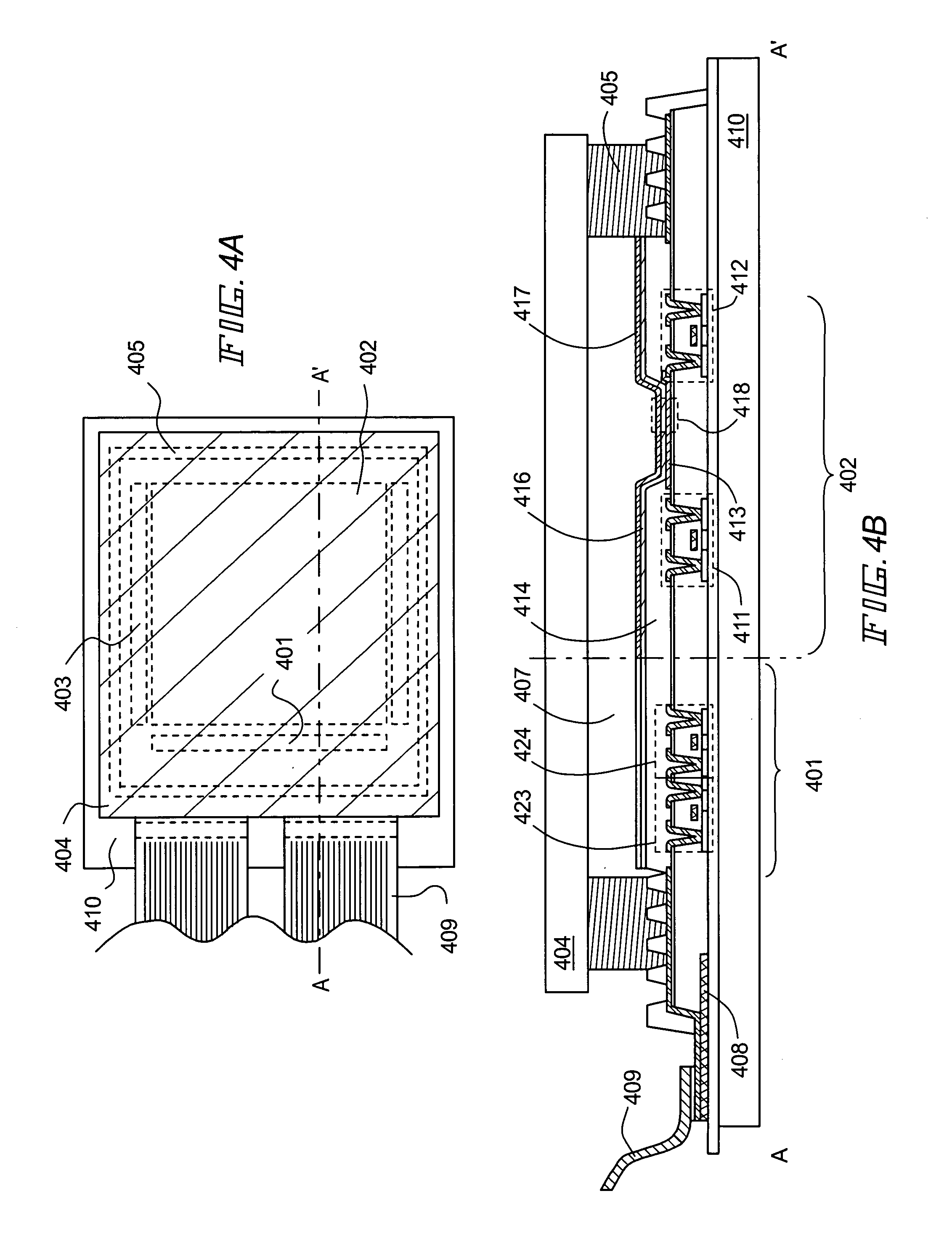Organometal complex, electroluminescence material using the complex, and electroluminescence element using the complex
a technology of organometal complexes and complexes, applied in the field of organometal complexes, can solve the problems of increasing the cost of the material itself, poor heat resistance, and small number of usable ligands, and achieve the effect of easy synthesizing
- Summary
- Abstract
- Description
- Claims
- Application Information
AI Technical Summary
Benefits of technology
Problems solved by technology
Method used
Image
Examples
embodiment mode 1
[0084]In this Embodiment Mode 1, an element structure of an electroluminescence element having a luminescent layer containing the organometal complex of this invention, a hole injection layer formed from a low-molecular material, a hole transport layer, a hole blocking layer, and an electron transport layer will be described with reference to FIG. 1.
[0085]Referring to FIG. 1, the structure is such that a first electrode 101 is formed on a substrate 100, and an electroluminescence layer 102 and a second electrode 103 are formed on the first electrode 101 in this order.
[0086]A material to be used for the substrate 100 is not limited so far as it has been used for conventional electroluminescence elements, and examples thereof are glass, quartz, a transparent plastic, and the like.
[0087]In this Embodiment Mode 1, the first electrode 101 functions as an anode, and the second electrode 103 functions as a cathode.
[0088]That is, the first electrode 101 is formed from an anode material, and...
embodiment mode 2
[0100]In this Embodiment Mode 2, an element structure of an electroluminescence element having a luminescent layer containing the organometal complex of this invention and a hole injection layer formed from a high-molecular material both of which layers are formed by wet processing will be described with reference to FIG. 2.
[0101]Since a substrate 200, a first electrode 201, and a second electrode 203 are formed by using the materials described in Embodiment Mode 1 and in the same manner as in Embodiment Mode 1, and then descriptions thereof are omitted.
[0102]An electroluminescence layer 202 is formed by stacking a hole injection layer 211 and a luminescent layer 212 in this Embodiment Mode 2.
[0103]As a hole injection material to be used for forming the hole injection layer 211, polyethylenedioxythiophene (abbreviation: PEDOT) which is doped with polystyrene sulfonic acid (abbreviation: PSS), polyaniline (abbreviation: PAni) doped with an accepter such as tetracyanoquinodimethane (a...
embodiment mode 3
[0107]In this Embodiment Mode 3, an element structure of an electroluminescence element having a luminescent layer containing two types of guest materials which are the organometal complex of this invention and a fluorescent compound, a hole injection layer formed from a low-molecular material, a hole transport layer, a hole blocking layer, and an electron transport layer will be described with reference to FIG. 3.
[0108]Since it is possible to form a substrate 300, a first electrode 301, a second electrode 303, a hole injection layer 311, a hole transport layer 312, a hole blocking layer 314, and an electron transport layer 315 by using the materials described in Embodiment Mode 1 and in the same manner as described in Embodiment Mode 1, and then descriptions thereof are omitted.
[0109]In this Embodiment Mode 3, an electroluminescence layer 302 is formed by stacking the hole injection layer 311, the hole transport layer 312, a luminescent layer 313, the hole blocking layer 314, and t...
PUM
| Property | Measurement | Unit |
|---|---|---|
| internal quantum efficiency | aaaaa | aaaaa |
| internal quantum efficiency | aaaaa | aaaaa |
| work function | aaaaa | aaaaa |
Abstract
Description
Claims
Application Information
 Login to View More
Login to View More - R&D
- Intellectual Property
- Life Sciences
- Materials
- Tech Scout
- Unparalleled Data Quality
- Higher Quality Content
- 60% Fewer Hallucinations
Browse by: Latest US Patents, China's latest patents, Technical Efficacy Thesaurus, Application Domain, Technology Topic, Popular Technical Reports.
© 2025 PatSnap. All rights reserved.Legal|Privacy policy|Modern Slavery Act Transparency Statement|Sitemap|About US| Contact US: help@patsnap.com



